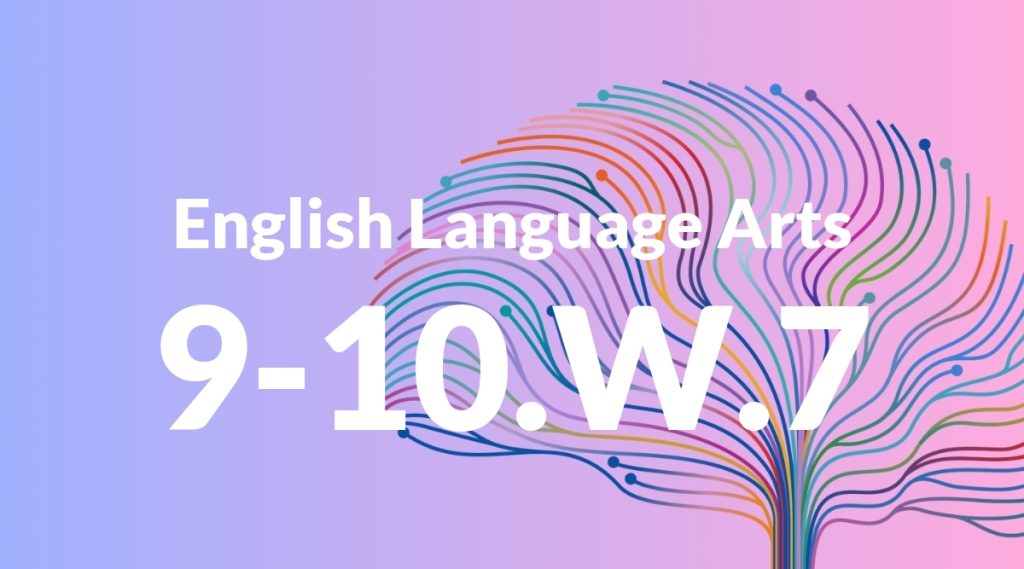Standard: 9-10.W.7 – Conduct short as well as more sustained research projects to answer a question (including a self-generated question) or solve a problem; narrow or broaden the inquiry when appropriate; synthesize multiple sources on the subject, demonstrating understanding of the subject under investigation.
Grade level: Grade 9-10
Subject: English Language Arts
Domain: Writing
Teacher Overview
This standard emphasizes the importance of conducting both short-term and extended research projects to answer questions or solve problems. It highlights the need for students to be flexible in their inquiries and to synthesize information from multiple sources. Mastery of this standard is crucial for developing critical thinking and problem-solving skills in students. Before tackling this standard, students should have foundational research skills, such as identifying credible sources, note-taking, summarizing information, and formulating questions.
After mastering this standard, students will be able to conduct sophisticated research projects, critically evaluate sources, synthesize diverse perspectives, and present their findings coherently in both academic and real-world contexts.
Common Misconception 1
A common misconception is that research solely involves finding information online. This is incorrect because effective research requires using a variety of sources, including books, academic journals, interviews, and credible websites.
Intervention 1
To remediate this misconception, provide students with assignments that require the use of diverse sources. Teach them how to evaluate the credibility of each source and the importance of cross-referencing information.
Common Misconception 2
Another misconception is that once a research question is chosen, it cannot be modified. This is incorrect because research is an iterative process, and questions should be refined based on new information and insights.
Intervention 2
Encourage students to view research as a dynamic process. Provide opportunities for them to revise their questions and approaches based on the information they gather. Use examples of real-world research projects that evolved over time.
Prerequisite Knowledge
Students should have basic research skills, including identifying credible sources, note-taking, and summarizing information. They should also be familiar with formulating questions and organizing information logically.
Subsequent Knowledge
Students will develop advanced research skills, such as critically evaluating sources, integrating diverse perspectives, and presenting findings coherently. They will also learn to apply research skills in various academic and real-world contexts.
Instructional Activities
- Assign a research project on a historical event requiring multiple sources.
- Conduct a class debate on a controversial topic, requiring students to research and present evidence.
- Create a multimedia presentation on a scientific phenomenon.
- Organize a mock trial where students must research and present their cases.
- Develop a community service project proposal based on researched needs.




